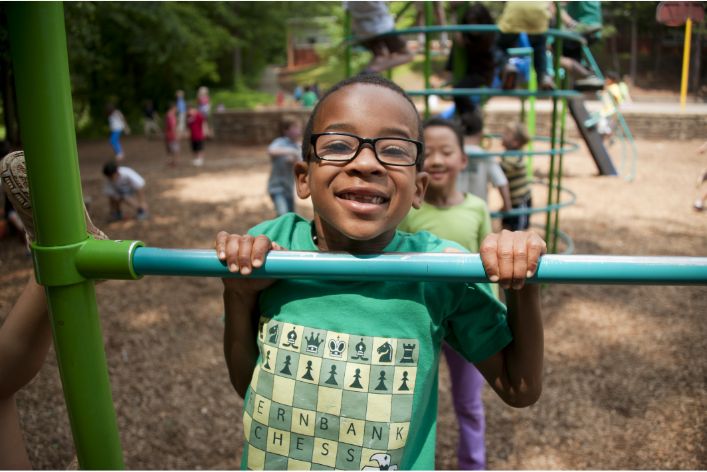Smart parenting is a concept focused on raising well-rounded and successful children. Incorporating culture in parenting techniques has become essential in achieving this goal. Culture plays a vital role in shaping a child’s beliefs, values, and behavior, and parents can use this to their advantage. Let’s explore the Nigerian culture parenting techniques.
Cultural values such as respect for elders, honesty, and hard work are essential in raising successful children. By respecting cultural practices and beliefs, parents can establish a strong bond with their children, fostering trust, and understanding.
Smart parenting techniques include teaching a child how to communicate effectively, building their self-esteem, and promoting independence and problem-solving skills. By incorporating cultural beliefs, practices, and traditions in these techniques, parents can instill in their children a sense of identity and pride in their heritage.
Children who are raised with a strong cultural foundation are more likely to excel academically, socially, and emotionally. In conclusion, incorporating culture in smart parenting techniques is crucial for the holistic development of a child. It will help them to appreciate their heritage, understand their place in society, and become responsible and successful adults.
Read: Raising a Girl Child in Nigeria: Unique Challenges
Overview of Nigeria’s Culture
Nigeria is a country with a rich and diverse culture that is influenced by its history, religion, traditions, and customs. With over 250 ethnic groups, Nigeria’s cultural background is one of its greatest strengths, contributing to its unique identity. Let’s examine the importance of Nigerian culture in smart parenting techniques.
Explanation of Nigeria’s Diverse Cultural Background
Nigeria is often referred to as the “giant of Africa” due to its large population, and diverse ethnic mix. According to the CIA World Factbook, the major ethnic groups in Nigeria are the Hausa-Fulani, Yoruba, and Igbo, who occupy different regions in the country. Each ethnic group has its own distinct culture, language, values, and beliefs.
The Hausa-Fulani, for instance, are predominantly Muslims and have strong kinship ties, which are fundamental in their culture. The Yoruba, on the other hand, are known for their rich traditions, which includes religion, music, and art. The Igbo, with their cosmopolitan culture, value education, entrepreneurship, and family.
Discussion on the Significance of Cultural Values and Beliefs in Nigerian Households
Cultural values and beliefs are integral components of Nigerian households, where they play a significant role in shaping the behavior, attitudes, and beliefs of children. Nigerian parents rely heavily on cultural values and beliefs to instill discipline, respect, and responsibility in their children.
For instance, in the Igbo culture, children are taught to respect their elders and follow their advice. Similarly, the Yoruba culture values respect for authority and traditional norms. For the Hausa-Fulani, respect for religious practices and customs is paramount.
Cultural values and beliefs actively pass from one generation to the next, enhancing family ties and promoting communal living. Nigerian parents extend their child-rearing roles beyond the home, acknowledging their custodial responsibilities towards their culture.
Read: Overcoming Parenting Obstacles in Nigeria’s Rural Areas
Smart Parenting Techniques in Nigerian Culture
Smart parenting techniques in Nigerian culture involve a balance of traditional and modern parenting practices. Nigerian parents strive to raise well-rounded and responsible children who can thrive in the 21st century while maintaining the values and traditions of their culture.
One of the key principles of smart parenting in Nigeria is discipline. Nigerian parents believe in setting strict rules and boundaries for their children while providing them with love and support. This approach instills a sense of responsibility and accountability, which is vital to raising responsible children.
Another smart parenting technique in Nigerian culture is the use of storytelling and folklore to educate children. Nigerian parents use stories to teach valuable lessons, instill cultural values, and promote language and literacy development.
Parenting Made Just for You
Get personalized Parenting Solutions tailored to your child’s needs. Transform your parenting journey with expert guidance in 1-3 days.
Get StartedIn addition, Nigerian parents encourage their children to be independent, self-sufficient, and responsible. They teach them life skills such as cooking, cleaning, and contributing to household chores. This approach helps children to develop a strong work ethic and sense of responsibility, which are essential attributes for success in life.
Nigerian culture plays a significant role in smart parenting techniques. The diverse cultural background of Nigeria provides a unique opportunity for parents to instill cultural values, beliefs, and practices in their children while promoting modern parenting practices.
Nigerian parents understand that raising well-rounded, responsible children requires a balanced approach that incorporates traditional and modern parenting techniques. Through discipline, storytelling, and encouraging independence, Nigerian parents are raising the next generation of leaders who are proud of their culture and equipped to excel in life.
Read: The Role of Extended Family in Nigerian Parenting
How Cultural Values Influence Parenting Techniques
Nigerian culture deeply informs parenting techniques, emphasizing family unity, communal living, and respect for authority. Parents often employ proverbs and folklore to impart moral values and life lessons to their children. For example, they use the proverb, “A child who asks questions does not miss his way” to foster curiosity.
Also, a popular folklore, “The Tortoise and the Hare,” instills the value of diligence and hard work in children. The culture demands children show high respect to elders, mirrored in the interaction between parents and children. Words like “Oga” or “Elder” signify this respect in addressing older people.
Community involvement and family support feature prominently in child-rearing. Extended family members often participate in a child’s upbringing, which strengthens family bonds and communal ties. This approach ensures children have multiple caregivers, facilitating comprehensive care and attention.
Nigerian parenting integrates traditional practices like naming ceremonies, circumcision, and rites of passage. The naming ceremony, a vital cultural event, introduces a newborn child to the family and community. The ceremony is an avenue for family and friends to offer support and blessings.
In a nutshell, Nigerian culture profoundly impacts parenting methods. Proverbs and folklore instill moral values; respect for elders is emphasized; community and family support in child-rearing is paramount; and traditional practices are incorporated. As global diversity increases, we must preserve and appreciate cultural values promoting healthy parenting.

Examples of Nigerian Parenting Techniques
Parenting is pivotal to the growth and development of a child. Generations have passed down rich parenting practices in Nigerian culture. These practices actively focus on discipline, storytelling, role modeling, assigning chores, responsibilities, prioritizing education, and encouraging achievement.
Importance of Discipline and Consequences in Nigerian Households
In Nigerian households, discipline is an essential tool for parenting. Parents are expected to use positive discipline, which involves teaching the child what is right and wrong through explanations and consequences for actions.
Consequences can be verbal reprimand, grounding or loss of privileges. This Nigerian parenting technique helps to build a child’s character, integrity, and self-esteem.
Use of Storytelling and Role-modeling to Teach Children Valuable Lessons
Storytelling is another Nigerian parenting technique that is used to teach children valuable life lessons. Nigerian parents often use tales and parables to communicate important messages and morals.
Parents also use role modeling, displaying behaviors they expect their children to emulate. This practice helps the child understand values such as honesty, hard work, and respect.
Unveil the Perfect Name that Tells Your Family's Story
Let us help you find a name that embodies your family's values, traditions, and dreams. Our personalized consultation weaves cultural insights to create a name that's uniquely yours.
Get StartedSignificance of Chores and Responsibilities in Child Development
Chores and responsibilities are essential elements in Nigerian parenting. Children in Nigerian households are expected to assist with household chores from an early age. This parenting technique is viewed as a way to build character, develop a sense of responsibility and build self-esteem. Nigerian parents often use chores as an opportunity to teach children important life skills such as cooking, cleaning and laundry.
Focus on Education and Achievement in Nigerian Culture
Achievement in academics is highly valued in Nigerian culture. Nigerian parents place a high priority on education as a means to a successful future. Nigerian children are often encouraged and motivated to work hard in school in order to attain academic excellence.
Parents provide necessary support such as tutoring and educational materials to support their children. They believe that educating their children provides a way of securing a better future and standard of living.
In fact, Nigerian parenting techniques are rooted in the culture and traditions of the people. Parents use discipline, storytelling, role modeling, chores, responsibilities, education and achievement to ensure that children have a strong foundation for their future.
These techniques help to shape the attitudes, behaviors and overall character of the child, resulting in well-rounded individuals who are successful in all aspects of life.
Read: Understanding Child Discipline: A Nigerian Perspective
Challenges in Implementing Nigerian Culture in Smart Parenting Techniques
Parenting techniques are based on cultural practices passed down from generation to generation. Nigerian culture is rich, and it has a significant role in shaping current parenting practices.
However, implementing Nigerian culture into smart parenting techniques has come with several challenges. In this blog post, we will discuss some of the challenges hindering the effective implementation of Nigerian culture in smart parenting techniques.
Negative Influence of Westernized Parenting Techniques
In recent times, most Nigerian parents have adopted Western parenting styles, which differs from traditional parenting. Western parenting is more liberal and allows children to express themselves and become individuals.
While Nigerian culture preaches respect for elders, obedience, and conformity to societal norms. As a result, there is a clash between these two parenting approaches, causing confusion and a lack of consistency in parenting techniques.
Generation Gaps Between Older Nigerian Parents and Younger Parents
The difference in age and cultural beliefs between older Nigerian parents and younger parents has also created challenges in implementing Nigerian culture in smart parenting techniques.
Older parents are more likely to subscribe to traditional parenting techniques versus younger parents who may have adopted Westernized parenting styles. These generational gaps lead to disagreements on parenting techniques and difficulty in passing down cultural practices from one generation to another.
Balancing Traditional and Modern Cultural Values in Parenting Approaches
When implementing Nigerian culture in smart parenting techniques, it is essential to balance traditional and modern cultural values. Modern cultural values are more liberal and open while traditional cultural values are more conservative and strict.
Parents must find a balance between these two cultural values to ensure that their parenting techniques align with their cultural beliefs while giving their children the freedom to express themselves.
Addressing Negative Aspects of Nigerian Culture that May Impact Parenting Techniques
Some negative aspects of Nigerian culture such as the use of corporal punishment, gender biases, and favoritism can significantly impact parenting techniques.
These practices are harmful and may negatively affect children’s emotional and mental health. Addressing these negative aspects of Nigerian culture and replacing them with more positive practices is essential for effective smart parenting in Nigeria.
Essentially, incorporating Nigerian culture into smart parenting techniques has come with several challenges such as the negative influence of Westernized parenting techniques, generation gaps, balancing traditional and modern cultural values, and addressing the negative aspects of Nigerian culture.
Despite these challenges, it is crucial to find ways to incorporate Nigerian culture into smart parenting approaches to ensure that children grow up with a sense of cultural identity and pride while still becoming responsible and independent individuals.
Read: What Makes One A Good Parent?
Conclusion
It is vital to incorporate Nigerian culture in smart parenting techniques as it helps in fostering strong family bonds and instills positive values in children. Parents who use cultural values and traditions in raising their children are more likely to have well-rounded and successful offspring.
By making cultural awareness an important part of effective parenting, we can preserve our traditions and pass them down to the next generation. Children who are aware of their culture tend to be more confident, respectful, and appreciative of diversity.
In this fast-paced world where technology dominates, it is imperative that we do not forget our roots and where we come from. When we embrace our culture and utilize it for parenting, we raise children who are emotionally intelligent, resilient, and culturally aware, ready to face the world’s challenges.




